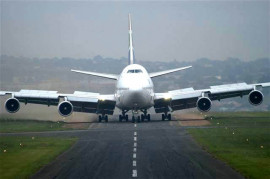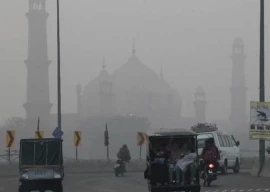Pakistan and India on Saturday pledged to move beyond their bitter past, including the negative fallout of the 2008 Mumbai attacks.
Following talks, Foreign Minister Hina Rabbani Khar insisted that Pakistan was willing to move ahead in ties without being held hostage to past positions. Her Indian counterpart, S M Krishna, also appeared to have softened his country’s hard-line stance on the issue of the Mumbai attacks trial.
“I have never said that the decision on some of the issues you mentioned is going to be dependent on what happens on Mumbai-related processes,” said Krishna when asked about the perception in Pakistan that New Delhi has linked progress on core issues with the prosecution of suspects of Mumbai attacks.
His remarks clearly suggest a departure from India’s past position that called for successfully trying the alleged masterminds of Mumbai attacks before the two countries deal with bigger issues.
In the past, Indian officials had publicly said that the normalisation process could not take place “under the shadow of guns”.
“All that I meant to convey is that India has always believed that a step-by-step approach is what will take this relationship forward,” the Indian foreign minister told a joint news conference with his Pakistani counterpart after their formal talks.
“Let’s do what is doable in immediate future … ultimately we will come to terms with some of these complex issues,” he said referring to the slow progress on Kashmir and other disputes.
Krishna also sought to quash the impression that Prime Minister Dr Manmohan Singh had attached any preconditions to his long overdue visit to Pakistan.
“The prime minister is not shying away from the visit,” he said adding that Singh would travel to Pakistan at an “appropriate time”.
President Asif Ali Zardari invited the Indian Prime Minister to visit Pakistan in November this year. Though, India has accepted the invitation in principle, it remains noncommittal on the timing of the trip.
In her remarks, Foreign Minister Khar underlined the need for the two neighbours to set sight on the future and not be held “hostage” by the past.
“What has happened till now is history, and we will not be held hostage to history. We build on convergences that unite us,” she said adding that Pakistan has a desire to look at India with a “different mindset”.
She said Pakistan sent out a strong message of that changed mindset when it decided to grant India the status of Most Favoured Nation (MFN).
“We decided to go ahead with this without being held hostage to past positions,” she added referring to an earlier Pakistani approach that had linked normalisation of ties with India to the resolution of core issues including the festering dispute over Jammu and Kashmir.
However, in an effort to pacify critics of this new approach, Khar called for “simultaneous progress” on all issues.
She maintained that the two countries must find out ways and means to resolve the Kashmir problem, “so that we continue to develop on our achievements through dialogue”.
“The aspirations of the Kashmiri people must be accommodated, and the quest for a peaceful settlement requires that we be associated in one way or the other within the dialogue process,” she said.
“We must be able to disarm the people who will continue to want to divide us. So it is important that we are able to resolve these issues so that we can move forward and continue to consolidate on the success that we have been able to achieve so far and start viewing each other and looking at each other and co-existing as a part of the region,” she added.
Joint statement
According to a joint statement issued after the high-level talks, the two countries agreed to launch the next round of secretary-level talks on all eight subjects that are part of the peace process.
These meetings will be held prior to next review meeting between the two foreign ministers in New Delhi in 2013, it added.
The two foreign ministers agreed that terrorism poses a continuing threat to peace and security.
“They reaffirmed the strong commitment of the two countries to fight terrorism in an effective and comprehensive manner so as to eliminate the scourge in all its forms and manifestations.
They noted the commitment given by Pakistan during the interior/ home secretary talks in May 2012 to bring all the perpetrators of the Mumbai terror attacks to justice expeditiously in accordance with due process of law.
The statement said the two sides held discussions on the issue of Jammu and Kashmir and agreed to the need for continued discussions, in a purposeful and forward looking manner, with a view to finding a peaceful solution by narrowing divergences and building convergences.
They reviewed the existing confidence building measures related to promoting trade and travel at the Line of Control.
Published in The Express Tribune, September 9th, 2012.
COMMENTS (3)
Comments are moderated and generally will be posted if they are on-topic and not abusive.
For more information, please see our Comments FAQ

1731479848-0/Elon-Musk-and-Vivek-Ramaswamy-and-Donald-Trump-(1)1731479848-0-165x106.webp)















@Tony Singh: Your story is excellent but not august and would you like to explain that what about Kashmir where Indian troops were deployed forcefully in 1948 and are killing innocent Kashmiri people almost daily?????
No matter how much there are reasons available for India and Pakistan to hate each other but if there is any hope of bright future of this region it lies only in the mutual respect and compromise of these two nations. Lets honestly work on it__ rather sooner than later.